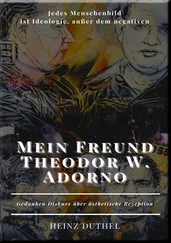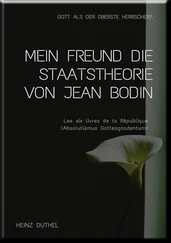The whole vision is changed, and instead of an eternal prison this world has become a playground; instead of a land of competition it is a land of bliss, where there is perpetual spring, flowers bloom and butterflies flit about. This very world becomes heaven, which formerly was hell. To the eyes of the bound it is a tremendous place of torment, but to the eyes of the free it is quite otherwise. This one life is the universal life, heavens and all those places are here. All the gods are here, the prototypes of man. The gods did not create man after their type, but man created gods. And here are the prototypes, here is Indra, here is Varuna, and all the gods of the universe. We have been projecting our little doubles, and we are the originals of these gods, we are the real, the only gods to be worshipped. This is the view of the
Vedanta, and this its practicality. When we have become free, we need not go mad and throw up society and rush off to die in the forest or the cave; we shall remain where we were, only we shall understand the whole thing. The same phenomena will remain, but with a new meaning. We do not know the world yet; it is only through freedom that we see what it is, and understand its nature. We shall see then that this so-called law, or fate, or destiny occupied only an infinitesimal part of our nature. It was only one side, but on the other side there was freedom all the time. We did not know this, and that is why we have been trying to save ourselves from evil by hiding our faces in the ground, like the hunted hare. Through delusion we have been trying to forget our nature, and yet we could not; it was always calling upon us, and all our search after God or gods, or external freedom, was a search after our real nature. We mistook the voice. We thought it was from the fire, or from a god or the sun, or moon, or stars, but at last we have found that it was from within ourselves. Within ourselves is this eternal voice speaking of eternal freedom; its music is eternally going on. Part of this music of the Soul has become the earth, the law, this universe, but it was always ours and always will be. In one word, the ideal of Vedanta is to know man as he really is, and this is its message, that if you cannot worship your brother man, the manifested God, how can you worship a God who is unmanifested?
Do you not remember what the Bible says, “If you cannot love your brother whom you have seen, how can you love God whom you have not seen?” If you cannot see God in the human face, how can you see him in the clouds, or in images made of dull, dead matter, or in mere fictitious stories of our brain? I shall call you religious from the day you begin to see God in men and women, and then you will understand what is meant by turning the left cheek to the man who strikes you on the right. When you see man as God, everything, even the tiger, will be welcome. Whatever comes to you is but the Lord, the Eternal, the Blessed One, appearing to us in various forms, as our father, and mother, and friend, and child — they are our own soul playing with us.
As our human relationships can thus be made divine, so our relationship with God may take any of these forms and we can look upon Him as our father, or mother, or friend, or beloved. Calling God Mother is a higher ideal than calling Him Father; and to call Him Friend is still higher; but the highest is to regard Him as the Beloved. The highest point of all is to see no difference between lover and beloved. You may remember, perhaps, the old Persian story, of how a lover came and knocked at the door of the beloved and was asked, “Who are you?” He answered, “It is I”, and there was no response. A
second time he came, and exclaimed, “I am here”, but the door was not opened. The third time he came, and the voice asked from inside, “Who is there?” He replied, “I am thyself, my beloved”, and the door opened. So is the relation between God and ourselves. He is in everything, He is everything. Every man and woman is the palpable, blissful, living God. Who says God is unknown? Who says He is to be searched after? We have found God eternally. We have been living in Him eternally; everywhere He is eternally known, eternally worshipped.
Then comes another idea, that other forms of worship are not errors. This is one of the great points to be remembered, that those who worship God through ceremonials and forms, however crude we may think them to be, are not in error. It is the journey from truth to truth, from lower truth to higher truth. Darkness is less light; evil is less good; impurity is less purity. It must always be borne in mind that we should see others with eyes of love, with sympathy, knowing that they are going along the same path that we have trodden. If you are free, you must know that all will be so sooner or later, and if you are free, how can you see the impermanent? If you are really pure, how do you see the impure? For what is within, is without. We cannot see impurity without having it inside ourselves. This is one of the practical sides of Vedanta, and I hope that we shall all try to carry it into our lives. Our whole life here is to carry this into practice, but the one great point we gain is that we shall work with satisfaction and contentment, instead of with discontent and dissatisfaction, for we know that Truth is within us, we have It as our birthright, and we have only to manifest It, and make It tangible.
In the Chhâdogya Upanishad we read that a sage called Nârada came to another called Sanatkumâra, and asked him various questions, of which one was, if religion was the cause of things as they are. And Sanatkumara leads him, as it were, step by step, telling him that there is something higher than this earth, and something higher than that, and so on, till he comes to Âkâsha, ether. Ether is higher than light, because in the ether are the sun and the moon, lightning and the stars; in ether we live, and in ether we die. Then the question arises, if there is anything higher than that, and Sanatkumara tells him of Prâna. This Prana, according to the Vedanta, is the principle of life. It is like ether, an omnipresent principle; and all motion, either in the body or anywhere else, is the work of this Prana. It is greater than Akasha, and through it everything lives. Prana is in the mother, in the father, in the sister, in the teacher, Prana is the knower.
I will read another passage, where Shvetaketu asks his father about the Truth, and the father teaches him different things, and concludes by saying, “That which is the fine cause in all these things, of It are all these things made. That is the All, that is Truth, thou art That, O Shvetaketu.” And then he gives various examples. “As a bee, O Shvetaketu, gathers honey from different flowers, and as the different honeys do not know that they are from various trees, and from various flowers, so all of us, having come to that Existence, know not that we have done so. Now, that which is that subtle essence, in It all that exists has its self. It is the True. It is the Self and thou, O Shvetaketu, are That.” He gives another example of the rivers running down to the ocean. “As the rivers, when they are in the ocean, do not know that they have been various rivers, even so when we come out of that Existence, we do not know that we are That. O Shvetaketu, thou art That.” So on he goes with his teachings.
Now there are two principles of knowledge. The one principle is that we know by referring the particular to the general, and the general to the universal; and the second is that anything of which the explanation is sought is to be explained so far as possible from its own nature. Taking up the first principle, we see that all our knowledge really consists of classifications, going higher and higher. When something happens singly, we are, as it were, dissatisfied. When it can be shown that the same thing happens again and again, we are satisfied and call it law. When we find that one apple falls, we are dissatisfied; but when we find that all apples fall, we call it the law of gravitation and are satisfied. The fact is that from the particular we deduce the general.
Читать дальше












